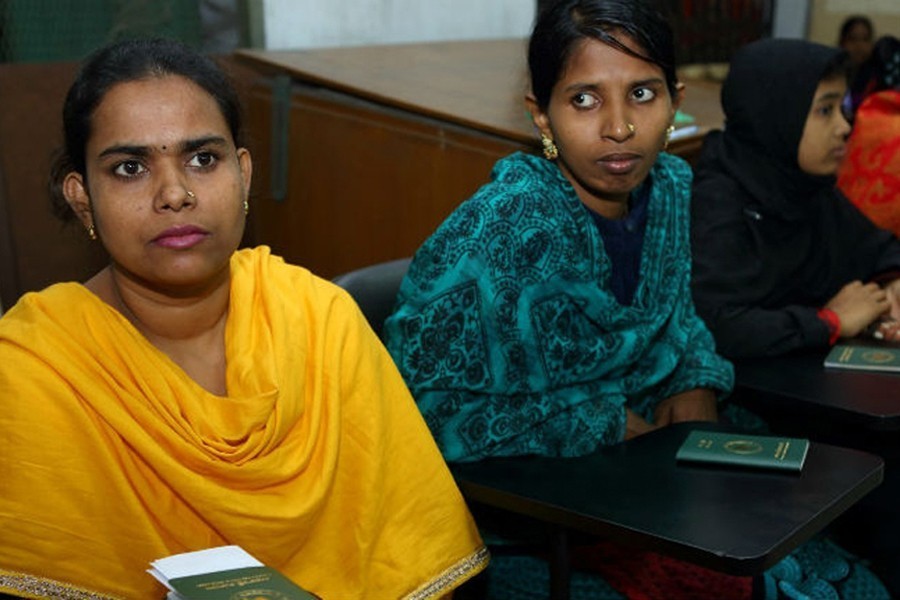
Published :
Updated :

Most migrant Bangladeshi women domestic helps remain unpaid, even though they are being forced to take up extra workload amid the Covid-19 outbreak worldwide.
According to a study by BNSK, about 76 per cent of the women migrants who returned home during the Coronavirus pandemic did not get full wage from their employers.
But their workload has increased by 62 per cent due to lockdown, found the Bangladesh Nari Sramik Kendra (BNSK) study.
On the other hand, it said only 22 per cent workers said they received meals regularly.
The study interviewed three types of respondents--- women migrant returned before and during Covid pandemic and working women migrants.
The surveyed working women workers are staying in Saudi Arabia, Oman, Jordan, Lebanon, UAE and Kuwait.
The study titled ‘Covid-19 Pandemics and Women Migrant Workers: Service Delivery Mechanism and Way Forward’ was conducted on 241 women migrant workers during the March and April period.
Because of restriction on movement almost all of the family members are staying home of their employers. So, their work pressure has increased manifolds, said Sumaiya Islam, executive director of BNSK.
Terming the workers’ situation as ‘bonded labour’, the rights activist said governments from both receiving and sending countries should take immediate measures to ensure their rights.
The women get only four hours a day for taking rest. But sometimes they are deprived of rest completely, she said.
The women also are facing different kinds of violence, Ms Islam added.
The study showed that nearly 73 per cent of the women domestic helps faced physical violence during this pandemic.
Following such exploitation, many workers became so exhausted that they considered suicide, it said.
The research recommended focusing on gender friendly programme. Steps should be taken for increasing budget and human resource allocation for food and shelter for the women workers staying in job destination countries.
It also emphasised public and private partnerships for mass awareness, skill training and reintegration.


 For all latest news, follow The Financial Express Google News channel.
For all latest news, follow The Financial Express Google News channel.